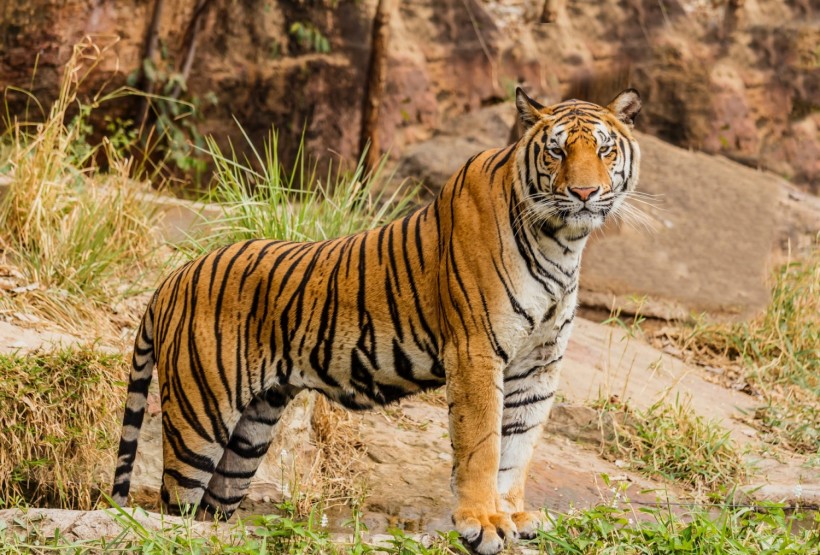Camping is a great way to enjoy nature and get away from the hustle and bustle of city life. However, it's essential to be aware of ways to protect wildlife while camping. If you're not careful, you could easily damage or disturb the natural habitat of local animals. In this blog post, Vikki Gerrard La Crosse will discuss nine ways that you can protect wildlife while camping!
Keep Your Campsite Clean And Free Of Debris
One of the best ways to protect wildlife while camping is to keep your campsite clean and free of debris. This means picking up any trash, including cigarette butts and food wrappers. It also means not leaving any food or garbage lying around.
Store all of your food and garbage in a bear-proof container to keep animals from getting into it. It also means not leaving behind any personal belongings that could end up in the hands of an animal. If you have a fire, extinguish it entirely before you go.
Don't Leave Food Or Trash Lying Around
Another way to protect wildlife while camping is to store all food and trash in a bear-proof container. Leaving food or debris lying around is dangerous for animals, but it can also attract them to your campsite, says Vikki Gerrard La Crosse.
If an animal smells food, they may try to get into your campsite to get to it. This can lead to a dangerous situation for both you and the animal. If an animal smells food, they may try to enter your campsite in search of it. This can lead to dangerous confrontations between animals and humans.
Use Designated Trails And Stay On The Path
When hiking or biking, be sure to use designated trails and stay on the path. Avoid shortcuts as they can damage vegetation and disturb wildlife habitats. If you see an animal while on the course, maintain a safe distance and don't try to approach it. Staying on the designated trails also helps protect you from getting lost and encountering dangerous animals.
Respect Wildlife And Keep Your Distance
Respecting wildlife is one of the most important ways to protect them while camping. This means not feeding them, touching them, or taking photos from too close up. Remember that these animals are wild and should be treated with caution and respect. Keeping your distance also helps to protect you from getting hurt. Some animals, like bears, can be dangerous if they feel threatened.
Report An Animal In Distress
If you see an animal that appears to be in distress, please report it to park officials. This is the best way to ensure that the animal receives its help. Do not try to rescue the animal yourself, as you could get hurt. The park officials are trained to deal with these situations and will be able to help the animal in the best way possible.
Don't Bring Pets Camping With You
Pets can be a great addition to any camping trip, but it's essential to leave them at home if you're planning on camping in an area with wildlife. Pets can disturb wildlife and get into fights with other animals, putting both humans and animals at risk.
If you must bring a pet camping with you, keep them on a leash at all times and under your control. Never leave your pet unattended, even for a moment, says Vikki Gerrard La Crosse.
Use A Campfire Grill To Cook Food Instead Of An Open Fire
Cooking food over an open fire can be a great way to enjoy the outdoors, but it's essential to be aware of the dangers this poses to wildlife. Open fires can quickly get out of control and spread into the surrounding area, damaging vegetation and habitats. If you're going to cook over a fire, use a campfire grill. This will help to contain the fire and prevent it from spreading.
Avoid Using Chemical-Based Insect Repellents
When camping, it's important to avoid using chemical-based insect repellents. These repellents can be harmful to both humans and animals if they're ingested or in contact with the skin. Instead, opt for naturally repelling insects, such as citronella candles or oil.
Being mindful of the animals is one of the best ways to protect them. When we are respectful and take the necessary precautions, we can enjoy nature without putting wildlife in danger.
Bring Along A Reusable Water Bottle To Reduce Plastic Waste
One final way to protect wildlife while camping is to bring a reusable water bottle. This will help reduce the amount of plastic waste produced during your trip. This is better for the environment, but it's also better for the animals that live in these areas. Reducing plastic waste helps keep the environment clean and safe for all creatures.
Final Thoughts
By following these simple tips, you can help protect wildlife while camping and ensure that your outdoor adventures are safe and enjoyable for everyone. Camping is a great way to enjoy nature and get closer to the animals that live there, but it's important to remember that we need to do our part in protecting them too. By being mindful of our surroundings and taking a few extra precautions, we can all help make sure that future generations will be able to experience the wonders of nature firsthand.
© 2024 NatureWorldNews.com All rights reserved. Do not reproduce without permission.
* This is a contributed article and this content does not necessarily represent the views of natureworldnews.com






